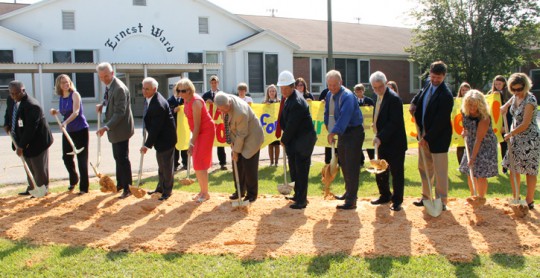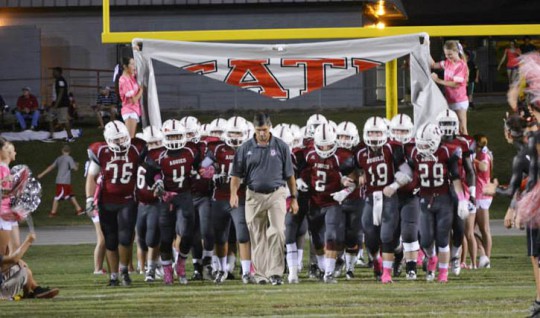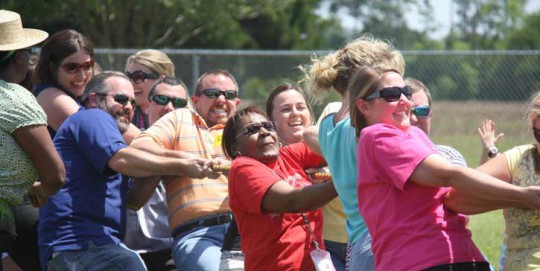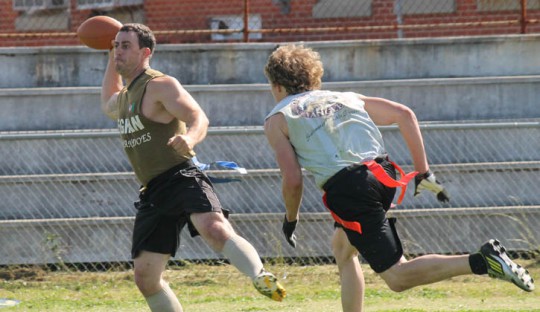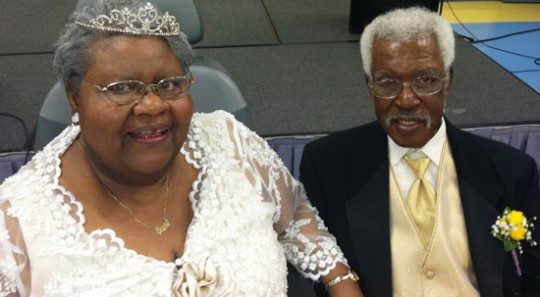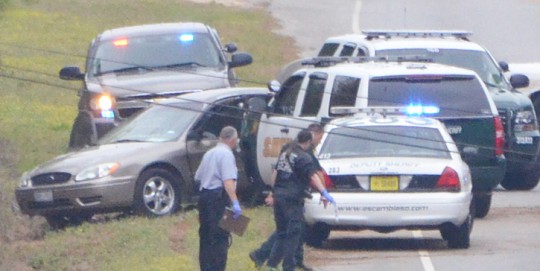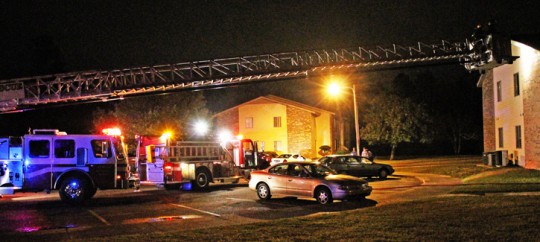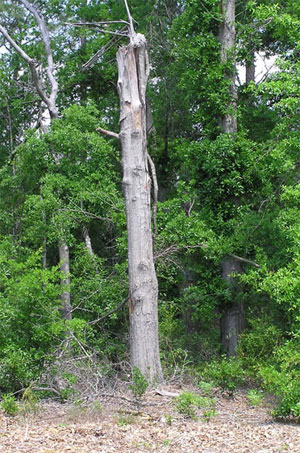Five Statewide Stories That Dominated 2013
January 1, 2014
On Jan. 1, 2013, few people had ever heard of the Dream Defenders.
Lt. Gov. Jennifer Carroll was still in office, and any rumblings about her future were confined to rumors that she might not be Gov. Rick Scott’s running mate in 2014. And Charlie Crist was still a private citizen.
Scott was known as the governor opposed to anything and everything to do with the federal Affordable Care Act. And 45 percent of voters disapproved of the governor’s job performance, compared to 36 percent who approved.
As the state nears Jan. 1, 2014, virtually all of that has changed. The Dream Defenders became the story of the summer in Tallahassee. Carroll was forced to resign because of her one-time association with an alleged illicit gambling operation. Crist is a newly-minted Democratic candidate for governor. Scott endorsed the Medicaid expansion that was one of the central pieces of the Affordable Care Act, even if he didn’t push very hard for it.
But some things, it seems, aren’t so easily changed. Scott’s disapproval rating stands at 47 percent in the most recent Quinnipiac survey, though 42 percent of those polled now approve.
Here are five big Florida politics and government stories from the year that was. The list isn’t meant to be comprehensive, and the rankings are certainly up for debate. But these are the things that many people will likely remember about 2013.
1. CHARLIE CRIST GOES FULL KAFKA, WILL RUN AS A DEMOCRAT
Former Republican governor Crist had already undergone most of his metamorphosis by the time 2013 dawned. Crist bolted from the GOP in 2010 to run as an unaffiliated candidate for the U.S. Senate, then joined the Democratic Party in late 2012 after backing President Barack Obama’s bid for re-election.
Instead, a very different waiting game was underway: Whether and when Crist would announce that he was going to challenge Scott for his old job. The “whether” wasn’t much in doubt. Crist ended speculation about the “when” in November. He filed for office Nov. 1 and held a rally three days later to make it official.
“When the people give you the honor of being the governor, you aren’t the governor of any one party,” Crist said. “You’re the governor for all Floridians. No matter what they say, it is not a sin to reach across the aisle. It is your obligation to work together. So yeah, I’m running as a Democrat and I am proud to do it.”
Crist started the race with a healthy advantage over Scott — he led by seven points in the first Quinnipiac poll after his announcement — but the match is far from a cakewalk. In a precursor for what is expected to be a brutal advertising campaign, Republicans spent much of 2013 unloading what seemed to be thousands of pages of opposition research on Crist months before he entered the race.
“Charlie Crist has now officially filed to run for the position he once abandoned,” Republican Party of Florida Chairman Lenny Curry said after Crist filed. “When Florida needed Charlie Crist the most during difficult economic times, he ran away. If he really wants to be Governor now, why did he quit the first time?”
Democratic U.S. Sen. Bill Nelson’s half-hearted attempts to stamp out rumors that he might run for governor just as often poured gasoline on them.
With 2014 opening, Crist’s only credible primary opponent is former Senate Minority Leader Nan Rich of Weston, who is a decided underdog. Barring the unexpected, Crist is on track to face off against his successor in November.
2. JENNIFER CARROLL LEAVES AMID FIRESTORM
On March 12, a skit at the annual comedy event put on by the Capitol press corps parodied what might happen if Scott tried to drop Carroll from the ticket ahead of his bid for re-election. The next day, Scott’s office announced that she was gone.
Carroll quit in the wake of a multi-state racketeering investigation into St. Augustine-based Allied Veterans of the World. State and federal authorities arrested 57 people associated with the nonprofit, accused of posing as a charity while running a $300 million illegal gambling ring through dozens of Internet cafés around the state.
Carroll co-owned a company that provided consulting services to Allied Veterans while she was a member of the House. She dropped her ties to the company after she was selected by Scott as his running-mate in 2010. Carroll was never charged with any crime.
“My decision yesterday to resign as Lieutenant Governor represents my unwavering commitment to the great state of Florida,” Carroll said. “I simply refuse to allow the allegations facing a former client of my public relations firm to undermine the important work of the Governor and his administration.”
Carroll’s resignation was in some ways eclipsed by the Legislature’s unusually swift response to the gambling sting. Lawmakers hurriedly passed a measure banning Internet cafés and shutting down so-called “senior arcades” popular with the elderly in Broward and Palm Beach counties and in Southwest Florida. Scott signed the measure into law less than a month after the May arrests.
Carroll later said she was asked by a Scott aide to resign shortly after she was visited by investigators probing the gambling ring.
“In my military time, when the commander in chief makes a demand or a request, you say ‘Aye, aye sir,’ and you march on. And that’s what I did,” the retired Navy officer told The Associated Press.
Carroll stepped down after an at-times tumultuous two-year tenure.
After criminal charges against an employee led to allegations last year that Carroll was caught in a compromising position with another female aide, Carroll outraged the LGBT community when she suggested she was too attractive to be gay. She later apologized.
Shortly after Carroll’s departure, Scott said he would wait until after the legislative session that had just begun to appoint her replacement. And so the Capitol waited until the session ended. And then waited. And then waited some more.
By the end of 2013, Scott — and the state — had gone nine months without a lieutenant governor. Rumors reporting that the position would go to state Sen. John Thrasher, R-St. Augustine, came up empty. A short list of four names leaked out late in the year, but two of those mentioned quickly withdrew from consideration. The position remains unfilled.
3. TO EXPAND OR NOT TO EXPAND ON MEDICAID
Scott built his political career largely on opposing Obama’s health-care law, sponsoring commercials to blast the act months before he decided to run for governor and before it was even passed by Congress. That made it all the more stunning when, in February, the former health-care executive stood in the Governor’s Mansion and announced that he supported Florida expanding Medicaid temporarily, a cornerstone of the Affordable Care Act.
“We have a choice — and it’s not an easy choice — but my job is to worry about every Florida family,” Scott said, portraying the issue as one of conscience.
Few House Republicans saw it that way. From the beginning, House Speaker Will Weatherford signaled that his chamber would be fiercely opposed to growing the Medicaid rolls, arguing that such a move would eventually tax the state’s budget if federal funding didn’t come through. And conservative activists called Scott’s endorsement of the Medicaid expansion that would draw down billions of dollars in federal funding a betrayal.
“Will Medicaid expansion cover me for the knife (Scott) just buried in my back?” Henry Kelley, a Northwest Florida tea party leader, said in a Twitter message.
Kelley and others didn’t need to worry. The House and the Senate quickly tossed Medicaid expansion overboard, while floating different alternatives.
The Senate wanted to tap into the federal money and offer private coverage to the same people who would otherwise be part of a Medicaid expansion. Those people have incomes up to 138 percent of the federal poverty level, or $26,951 for a family of three.
The House countered with a state-funded plan to offer $2,000 subsidies to people whose incomes are up to 100 percent of the federal poverty level and meet certain guidelines such as being parents of children. Those people would be able to buy coverage through a long-planned state health online marketplace known as Florida Health Choices. A family of three with an income of $19,530 — 100 percent of the poverty level — would qualify.
In the end, neither side budged enough to get a deal done. And Scott — as Democrats pointedly noted — seemed unwilling to spend much, if any, political capital to force the Legislature to act. All the proposals for increasing insurance coverage died.
4. THE IMPOSSIBLE DREAM ON GUN LAWS
No one quite knew what to think when a group of about 100 students and protesters made their way to Scott’s office on July 16, calling for changes to the state’s self-defense laws.
The protesters were reacting to the acquittal of George Zimmerman in the shooting death of Trayvon Martin, an unarmed black teenager. As the evening hours wore on, about 40 protesters stayed on past 5 p.m. and vowed to spend the night.
The last of them left 31 days later.
At a time when the summer doldrums are usually at their worst for Capitol reporters, the Dream Defenders showed a knack for generating media attention and bringing attention to their cause: a special session called to overhaul the state’s controversial “Stand Your Ground” law and ease zero-tolerance discipline policies in schools.
When lawmakers refused to call a special session, the Dream Defenders held a “People’s Session.” Harry Belafonte and the Rev. Jesse Jackson came to Tallahassee to wish them well.
Jackson connected Zimmerman’s fatal shooting of Martin to dozens of other unarmed African-Americans killed by police, security guards or “vigilantes,” in Jackson’s word.
“Trayvon was a canary in the mine,” Jackson said. “There are many more birds in that mine.”
Protesters eventually left after forcing the state to poll legislators to see if they wanted a special session. Lawmakers did eventually hold a subcommittee vote on a bill to repeal Stand Your Ground — and killed the measure on an 11-2 vote.
“We stand and defend what is ours,” said Rep. Jimmie Smith, R-Inverness. ” ‘Stand your ground’ is core to our American way of life.”
5. WE HARDLY KNEW YE. OR YE. OR YE.
High-ranking officials have not lasted long in Scott’s administration. At least 12 department heads hired in the three years Scott’s been on the job have resigned. The governor is on his third chief of staff and still has a vacancy in the lieutenant governor slot.
Scott’s revolving door seemed to worsen in 2013. At one point, the lead positions in charge of public schools and higher education were both vacant. Both were filled by the end of the year, but the transitions did little to ease an appearance of turmoil inside the Scott administration.
The quickest and highest-profile fall from grace befell Education Commissioner Tony Bennett, a rising star in the school accountability movement when he took over in Florida. But the ghosts of his old job in Indiana soon came back to haunt Bennett, who resigned in August after fewer than eight months on the job in the wake of reports that he tweaked the Indiana school report card formulas to help a school founded by a political contributor.
A state report in Indiana, issued after Bennett had already quit the Florida job, later found the grade changes were “plausible,” and the policy behind the changes “was consistently applied to other schools with similar circumstances.” Bennett was eventually replaced by Pam Stewart in her second stint as interim education commissioner. Before Bennett was hired, Stewart filled in after his predecessor Gerard Robinson, who served for a little more than a year, stepped down. Stewart is now education commissioner, the fourth since Scott took office.
Bennett’s departure followed on the heels of the resignation of DCF Secretary David Wilkins. Wilkins quit in July amid criticism of the agency’s handling of four children whose deaths critics said could have been prevented. Since then, the state has commissioned a study of 40 deaths of children known to the department when they died of abuse or neglect.
Wilkins had also battled the state’s 19 community based care organizations, which deliver local child-welfare services, saying he was trying to make the local agencies more accountable.
Interim Secretary Esther Jacobo has announced she will stay on the job through the end of the 2014 legislative session.
And State University System Chancellor Frank Brogan left in August for a similar post in Pennsylvania. Though there were fewer immediate signs of trouble in Brogan’s relationship with Scott, the governor had ruffled some feathers by pushing the Florida Board of Governors to keep tuition rates down and increase its emphasis on the science, technology, education and math degrees that he believes will power the new economy.
The board quickly turned to Marshall Criser, a fixture of the state’s business and political establishment, to fill the post. Criser, the son of a former president of the University of Florida and member of the UF board of trustees, had served as president of AT&T Florida since 2005 and has had a role in government relations in Florida for telecom giant or its state predecessor, BellSouth, off and on since 1989.
QUOTE OF THE YEAR: “You can’t dip them in milk and hold them over a candle and see the United Nations flag or Barack Obama’s face. They’re not some federal conspiracy.”–Sen. Don Gaetz, R-Niceville, responding to the concerns some conservative activists have about the Common Core education standards.
Top North Escambia Stories Of 2013
January 1, 2014
Here are our picks for the Top 10 Stories of 2013 on NorthEscambia.com :
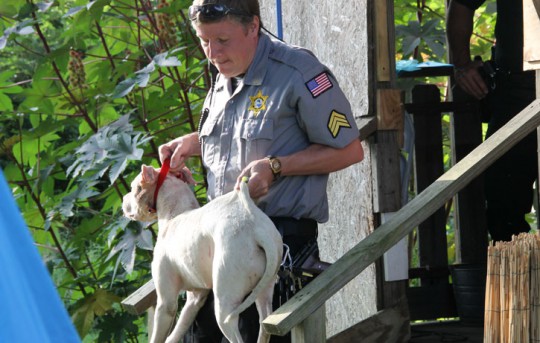 10. Pit Bill Attacks and Debate
10. Pit Bill Attacks and Debate
A Nokomis woman was viciously attacked and mauled by two pit bulls at her home on Jakes Road in the Nokomis community. Doctors were forced to amputate 63-year old Sandra Lambert’s arm after the attack. The dogs were euthanized. Days later, an Escambia County deputy shot and killed two pit bulls that attacked a road crew near Tate High School in Cantonment.
9. Molino Library Opening
The Molino Branch Library opened on April 1 in the Molino Community Complex — a complete remodel of the old Molino Elementary School. The new library was opened for 52 hours per week. An opening reception in April gave the public an opportunity to meet the library staff, peruse the opening day collection, register for a library card and tour the facility. The Molino Community Complex project included the conversion of the old Molino School in to a library, community center and museum. There was also a new 7,000 square foot facility constructed for the tax collector and property appraiser. The project was funded by local option sales tax monies.
8. Outlawing The Animal Farm
After months of debate — and public protest — the Century Town Council gave final approval just days before Christmas to a new animal control ordinance that prohibits most barnyard animals from most parts of the town. Residents that own animals that don’t meet the ordinance have just weeks to register them at the town hall.
7. One Of The Nation’s Very Best — Northview FFA
The honors just kept pouring in during 2013 for the Northview High School FFA — Outstanding FFA Chapter, State Superior Chapter, State FFA Gold Chapter Rating for hosting the top “Food for America” program in Florida. Then at the National FFA Convention in Louisville, KY, the Northview FFA was awarded the Three Star Chapter designation — the highest status at the national level — on live national television. The chapter’s accomplishments were recognized by the Escambia County School Board and the Town of Century. And it should be noted that Northview FFA sponsor and 25-year teaching veteran Perry Byars was named Northview’s Teacher of the Year in March.
6. Molino Park Burglary
Just days before students and teachers returned to school in August, two adults and three juveniles broke into Molino Park Elementary, cleaning out tens and tens of thousands of dollars of electronics. iPads, Wii games, numerous computers and more — all gone. Within a month the Escambia County Sheriff’s Office busted the offenders and located most of the stolen merchandise. But in an almost unimaginably low twist on a despicable crime, most the items were found burned.
5. Ernest Ward Groundbreaking
A groundbreaking ceremony was held in August for a new $17 million rebuild of Ernest Ward Middle School in Walnut Hill. The oldest buildings at Ernest Ward, including the main classroom wing, were constructed in 1945 to replace a campus ravaged by fire in 1943. That old school had been constructed to replace an Ernest Ward School that first opened in a log cabin in 1896. The new Ernest Ward will be an ultra modern learning facility designed to last for generations to come.
4. Jobs: Black Gold And Yellow Pine
In 2013, the Walnut Hill Crude Oil Rail Unloading Facility operated by Genesis Energy, LP celebrated its first year and 100th unit train of crude oil. The oil is loaded on trains in North Dakota, transported to Walnut Hill, unloaded from the rail cars and injected into a pipeline bound for Gulf Coast refinery. A simple sounding process that has meant mega bucks flowing through the Walnut Hill facility as the largest of its kind in the U.S. It’s also meant jobs, and it allowed Escambia River Electric Cooperative to make major improvements in the electrical system serving the Walnut Hill community. Meanwhile, Gov. Rick Scott announced in July the reopening of the McDavid Sawmill, returning 50 jobs to North Escambia.
3. Tate High Football Program
A man named Ronnie Douglas was 1 of 46 that applied and the chosen one for the Tate Aggies head football coaching job. The Aggies were coming off dismal 1-8 and 0-11 seasons as Douglas led them into a 21-7 Spring Game loss against Niceville. Then for opening night of the fall season, the Aggies lost 45-3 to West Florida. But then the Aggies began to win, and win, and win. The Aggies ended their comeback regular season at 8-2 — their best record in a decade. And they earned a ticket to the playoffs.
2. Highway 29, Highway 97
Perhaps the most “famous” intersection in North Escambia, we reported wreck after wreck at the intersection in 2013. Then a parade of politicians led by District 5 Commissioner Steven Barry held a sit down meeting with the Florida Department of Transportation. With Escambia County agreeing to foot the bill, the state agreed a red light and an intersection redesign was needed.
1. Crime And Punishment
The 2013 headlines were dominated by crime — and punishment. With Operation Blister Pack 2, law enforcement at every level targeted the methamphetamine and pseudoephedrine arrests of about 60 people. Most of the arrests were North Escambia related, with drug groups dubbed “The Village Group”, centered around “The Village” area of Forrest Street and Lakeview Avenue in Cantonment; and “The Ayers Group” for a group centered around Ayers Street in Molino. Add in murders, murder convictions, burglaries and batteries, and the most frequent headline of 2013 was crime.
2013 In Photos: April
January 1, 2014
All this week, we are looking back at the photos that were in the news in 2013. Today, we are featuring photos from April.
The Northview Chiefs received their football state championship rings in April.
The Tate High School Showband of the South marches in the 2013 Fiesta Flambeau Parade in San Antonio, Texas.
Tate High School teachers and volunteers took on the U.S. Marines — and won — during a game of tug of war.
Atmore held their annual Relay for Life.
Local residents remembered the Boston Marathon bombing victims.
A group of locals running the Boston Marathon were not injured.
A powered paraglider trike and the sunset as seen along Highway 97 near Nokomis Road in Davisville.
Arial Holland slides into home for the Northview Chiefs.
In April, the Navy canceled the rest of the season for the Blue Angels.
The 20th Annual Spring Livestock Show was held at the Langley Bell 4-H Center on Nine Mile Road after the sale of the property to Navy Federal.
A flag football tourney was held to benefit the Northwest Escambia sports program.
Century council member Annie Savage renewed her wedding vows with husband Lloyd.
A high speed chase came to an end near Pine Forest High School.
Atmore firefighters use a ladder truck to access an apartment fire.

The Molino Branch Library opened in April.
Rainy Tonight, Turning Colder
January 1, 2014
Here is your official North Escambia area forecast:
- Tonight: Rain, mainly after 9pm. Low around 51. East wind around 5 mph. Chance of precipitation is 90%.
- Thursday: Rain, mainly before noon. Temperature rising to near 58 by 11am, then falling to around 48 during the remainder of the day. Breezy, with a light and variable wind becoming northwest 15 to 20 mph in the morning. Winds could gust as high as 30 mph. Chance of precipitation is 90%.
- Thursday Night: Mostly clear, with a low around 29. Wind chill values between 15 and 25. Northwest wind around 15 mph, with gusts as high as 25 mph.
- Friday: Sunny, with a high near 46. North wind 10 to 15 mph, with gusts as high as 20 mph.
- Friday Night: Mostly clear, with a low around 26. North wind around 5 mph becoming northeast after midnight.
- Saturday: Mostly sunny, with a high near 57. East wind 5 to 10 mph becoming southeast in the afternoon.
- Saturday Night: A 20 percent chance of showers. Mostly cloudy, with a low around 46. Southeast wind around 5 mph.
- Sunday: A 50 percent chance of showers and thunderstorms. Mostly cloudy, with a high near 64. East wind 5 to 10 mph becoming west in the afternoon.
- Sunday Night: A 40 percent chance of showers. Mostly cloudy, with a low around 38.
- Monday: Mostly sunny, with a high near 48.
- Monday Night: Partly cloudy, with a low around 26.
- Tuesday: Sunny, with a high near 45.
- Tuesday Night: Partly cloudy, with a low around 25.
- Wednesday: A slight chance of showers. Mostly sunny, with a high near 50.
Florida Minimum Wage Increased
January 1, 2014
Florida workers who earn the state minimum wage saw a slight increase in their paychecks on Wednesday.
 An automatic increase of 14 cents an hour went effect on January 1, raising the lowest pay rate in the state to $7.93, up from $7.79. The boost to the minimum wage is below the average increase of around 25 cents an hour since Florida started setting its own minimum wage in 2005.
An automatic increase of 14 cents an hour went effect on January 1, raising the lowest pay rate in the state to $7.93, up from $7.79. The boost to the minimum wage is below the average increase of around 25 cents an hour since Florida started setting its own minimum wage in 2005.
The federal minimum wage is $7.25.
New Laws: Elections, Sex Trafficking, Natural Gas, Foster Care
January 1, 2014
Bills that crack down on human sex trafficking, address problems from the 2012 election, allow foster care children to remain in the program until 21, and provide an incentive for companies to expand their fleet of natural gas vehicles become law Wednesday.
While the bulk of the nearly 200 new laws approved by the Legislature and signed by Gov. Rick Scott from the 2013 session hit the books in July and October, a few more kick in with the New Year.
Accompanying the handful of new laws is a slight increase in the paycheck for Florida’s minimum-wage earners.
The automatic increase of 14 cents an hour, recalculated by law each year based on the federal Consumer Price Index, raises the minimum pay rate in the state to $7.93, up from $7.79. The federal minimum wage is $7.25.
Here are highlights of bills taking effect Jan. 1:
Elections
HB 7013: The law — quietly signed by Scott before heading to Chile for a trade mission in May — is aimed at cleaning up voting problems that plagued parts of the state during the November 2012 elections.
The law allows up to 14 days for early voting, though local supervisors could remain at the current eight days, and allows for more flexibility with early voting sites. It would limit the length of some ballot summaries for constitutional amendments.
And it would dissolve a committee that sets the date of the presidential primary and instead requires that vote be held on the first Tuesday that complies with party rules. Both Republican and Democratic delegations to national conventions have lost members over the last several years as Florida vied for earlier primary dates.
Elections reform vaulted to the top of legislative priorities after the November 2012 problems, which included some Florida voters not casting ballots until after television networks had projected President Barack Obama the winner nationwide. It also took days before Obama was declared the winner in Florida.
Sex trafficking
HB 1325 and HB 1327: The measures establish a legal process for human-trafficking victims to get their criminal records expunged — typically for prostitution charges.
The new laws only apply to crimes committed while the victims were being forced, threatened or coerced.
The measures ran through the Legislature as companions to a bill (HB 7005) that prevents the operation of massage establishments between midnight and 5 a.m. That bill — which has exceptions for businesses such as health facilities and hotels that might offer massage services — became law Oct. 1.
Natural gas
HB 579: This measure exempts natural gas from the state fuel tax for five years, provides an incentive for companies to expand their fleet of natural gas vehicles and, starting in 2019, establishes a fuel-tax structure for natural gas that is similar to that for diesel fuel.
“This legislation will pave the way for the increased use of natural gas; spurring economic growth, reducing our dependency on foreign oil, and providing a cleaner burning source of fuel,” Sen. Wilton Simpson, the Trilby Republican who sponsored the bill, declared in April.
The Natural Gas Fuel Fleet Vehicle Rebate Program offers rebates of up to 50 percent of the costs of converting certain vehicles to natural gas-powered vehicles. An applicant would be eligible to receive a maximum rebate of $25,000 per vehicle, up to a total of $250,000 per fiscal year.
The bill also requires any person selling natural gas fuel at retail in Florida to obtain a license from the Department of Revenue.
The Revenue Estimating Conference estimated that by 2019 the law will cut $100,000 from the state’s general revenue, $300,000 from state trust funds, and $200,000 from local governments.
Courts
HB 7017: Repeals fixed terms of court, which are an old concept left over from the days when circuit judges or Supreme Court justices went to the town where their court was meeting for a specified term.
Limited liability companies
SB 1300: A voluminous 224-page package that is intended to modernize the rules for limited liability companies and keep Florida competitive with other states in efforts to retain businesses and jobs.
Foster care
SB 1036: This law gives young adults the option to stay in foster care until age 21. Those in the foster care system would be allowed to remain in the program past the age of 18 if they are completing high school, postsecondary or vocational educations, participating in job-training programs, working at least 80 hours per month or are unable to participate due to disabilities.
The bill analysis concluded that it wouldn’t cost more to allow children to stay in the system until 21 because youths who age out of foster care often end up homeless, jobless or in jail.
Make A Resolution To Be More Wildlife Friendly
January 1, 2014
 The tradition of the New Year’s Resolutions dates back to 153 B.C. Janus, a mythical king of early Rome was said to have two faces which allowed him to look back on past events and forward to the future.
The tradition of the New Year’s Resolutions dates back to 153 B.C. Janus, a mythical king of early Rome was said to have two faces which allowed him to look back on past events and forward to the future.
The beginning of a new year is a great time to reflect on the issues of the past and resolve to do better in the upcoming year. The 2010 Gulf oil spill had a devastating impact on local wildlife. Florida is a state renowned for its diverse and unique ecosystems. But rapid development and environmental disasters, particularly in coastal areas, is continuing to destroy wildlife habitat. Resolve to be more wildlife-friendly in 2012 by following these easy tips from the Florida Yards and Neighborhoods Program.
Provide food
Select plants with seeds, fruit, foliage, or flowers that butterflies, birds, and other wildlife like to eat. Berries, fleshy fruits, nuts, and acorns are all treats for many animals.
Supply water
Any water you provide will attract wildlife. You could have running water in the form of a natural feature, such as a pond, creek, or other body of fresh water, but a fountain or birdbath will also beckon wildlife. Empty and clean your birdbath every few days. Do not clean it with soap or bleach—just physically scrub all surfaces with a brush or scouring-type sponge. Change the water regularly to prevent mosquito breeding and bacterial contamination.
Leave snags, which are the trunks of dead trees, in place if they do not create a hazard. Many birds use snags for perching, nesting, and feeding. Snags are often removed from yards or land mistakenly thought of as no longer having value. Nothing could be farther from the truth. A tree’s full life cycle at this point, is far from over.
Manage pets
If you permit pets to harass or kill wildlife, you will only hinder any efforts you make toward attracting wildlife. This is especially true for cats allowed outdoors.
Reduce insecticide use
Each time you apply an insecticide to your landscape, you reduce insect populations, which form an important food source for birds. Some chemicals can also poison birds and other animals that feed on affected insects.
Reduce the amount of mowed lawn area
Unmowed areas can contain more plant species than mowed areas, providing more potential food sources and habitat for wildlife. Reduce the mowed area around your house, especially in low-traffic areas, such as corners of the yard.
Increase vertical layering
Plant a variety of plants in different sizes and heights to provide more cover and feeding opportunities for diverse species of wildlife.
By following the simple tips in this chapter, your Florida-Friendly lawn and garden can become a sanctuary for wildlife, as well as part of a migratory passage between one wild space and another. Animals need to move from place to place, just like people. They have trouble traveling in heavily urban and suburban landscapes, but you can help them by joining your Florida-Friendly yard with others in the neighborhood to create a “natural corridor”—a safe, traversable route between woodlands, wetlands, or other wild areas.
For more specific information, visit the University of Florida/IFAS website at http://edis.ifas.ufl.edu/topic_landscaping_for_wildlife or call your local Extension Office.
Theresa Friday is the Residential Horticulture Extension Agent for Santa Rosa County.



